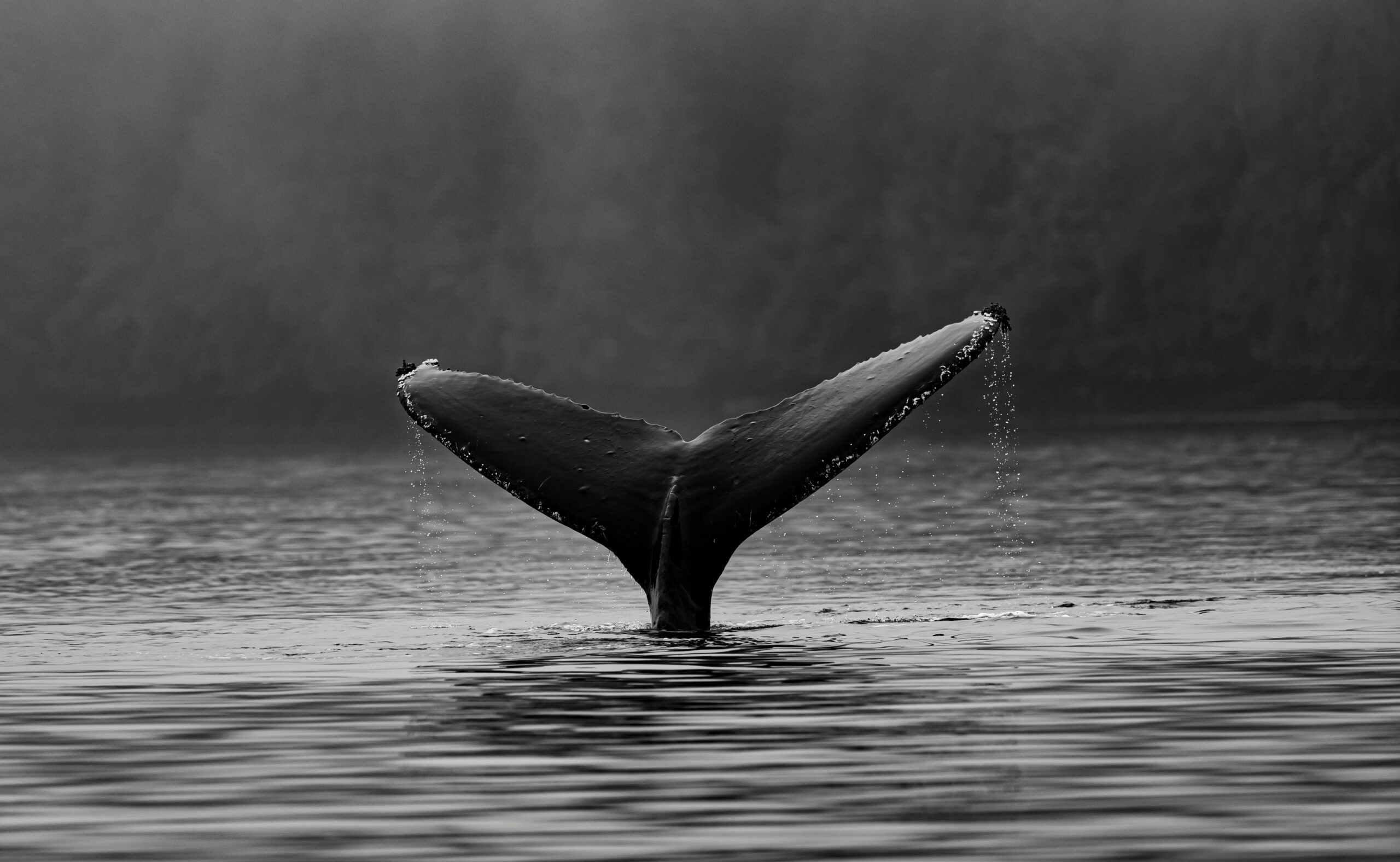Image: Whale tail – Thomas Lipke
After 25 years of operation, Cork Whale Watch has ceased its tours, citing a significant decline in marine wildlife, as reported in the Guardian.
Colin Barnes, the founder of Cork Whale Watch and a veteran marine observer, announced the closure, expressing deep concern and attributing the drop in whale numbers to the overfishing of sprat, a vital forage fish in the region’s ecosystem:
“Huge trawlers have overfished the sprats to the point of near extinction. There is nothing left for the whales to prey upon so they have moved on in search of prey elsewhere.”
Sprat fishing under fire
Sprat, small herring-like fish, play a crucial role in the marine food web, serving as a primary food source for larger fish, seabirds, and marine mammals. The fishing of sprat in Irish waters has raised alarms among conservationists and scientists. The Irish Whale and Dolphin Group (IWDG) highlighted that the average annual sprat landings between 2020 and 2022 were approximately 12,400 tonnes, significantly exceeding the precautionary advice of 2,240 tonnes.
Humpback, minke, and fin whales, once commonly sighted off the West Cork coast, have become increasingly rare. Pádraig Whooley of the IWDG noted that these species are now more frequently observed in the northwest regions, such as Donegal and Sligo, suggesting a shift in their feeding grounds due to the scarcity of prey.
He suggests that this could be due to a “small number of large pair trawlers who have persisted in the ecologically-unsound practice of “spratting” in our shallow bays and estuaries in late autumn and winter, at the very time these small pelagic shoaling fish are attempting to spawn. Remove the feed and you remove the whale.”
The closure of Cork Whale Watch has sparked public concern and prompted calls for immediate action. Christopher O’Sullivan, the Minister responsible for nature and biodiversity, emphasised the need to protect forage species like sprat to prevent the collapse of the entire food web.
Warming waters
Patrick Murphy, the chief executive of the Irish South and West Fish Producer’s Organisation, believes that warming waters are shifting sprat further north – noting an increase in sprat catches elsewhere – and suggested that this was perhaps the driving force behind fewer whale sightings.
“We are asking for a proper scientific assessment for this species, so a proper management policy can be developed to ensure the continued sustainability of this important fishery,” he said.
Hope on the horizon
Despite these challenges, some operators, such as Atlantic Whale and Wildlife Tours, continue to offer excursions, albeit with fewer wildlife sightings. Mark Gannon, who runs the tours from Courtmacsherry, acknowledged the decline in marine life:
“It’s a devastating form of fishing. It’s like a farmer taking all the grass out of his fields and expecting his cows to thrive.”
However, he remains hopeful that “with the right policies, the south of Cork and the west coast of Ireland could be the European capital of marine tourism.”
